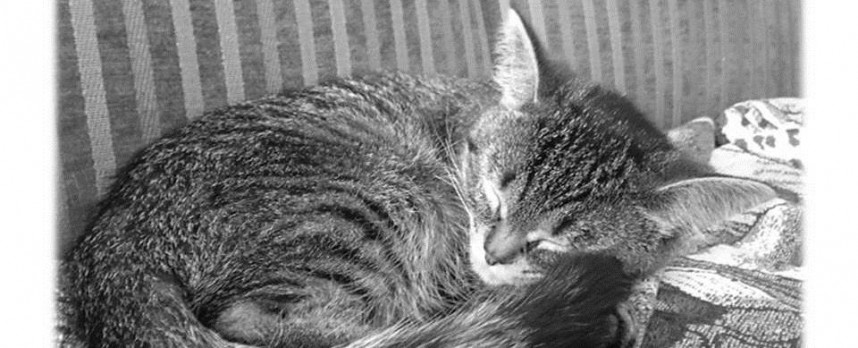Help: My cat meows in the morning!
By Dorothée Pâris Pasturel • 25 January 2021
It’s 6 a.m. and the alarm is ringing. Except that noise is not coming from your alarm clock. It’s coming from your cat, who seems to have decided it’s time for you to get up.
Many kitty owners will recognize this morning routine. And for good reason: morning meowing is one of the most common reasons for behavioural consultations.
Why does my cat meow in the morning?
Before trying to solve the problem, you need to understand the reason for your cat’s behaviour:
- The most common reason is hunger. Kitty’s meal is served in the morning and, like everyone else, she knows her routine well: you get up, you go to the bathroom, you give her food. So it’s normal for her to want quick access to her food in the morning, and she knows that you need to be awake for that to happen.
- Another reason might be that she simply needs attention. If your cat needs regular contact, she might find it hard to be separated from you for several hours. “Wake up and hug me!”
- She wants to play. Do you usually play with your cat after you wake up in the morning? If so, this may explain why she wants to make it a habit.
- There has been a change. Kitty’s environment or routine may have changed recently. Even just a time change can make kitty lose her bearings and cause her to meow. It’s a period of stress that can manifest itself in this way.
Cats are creatures of habit for whom routines are real reassuring cues. They’re naturally going to model their rhythm on ours. That is why cats and humans get along so well. So if you’ve gotten into the habit of giving kitty something when you wake up, she’ll remember that very well the next day, and the next… Also, your cat knows that meowing makes things happen: food, playtime, outings, pets, etc. She knows that when she wakes you up (by meowing), she’ll get what she wants. A routine has been established without you even realizing it. All this because maybe ONCE, she meowed and you responded by giving her food. And your cat understood that perfectly.

What should I do?
- Your cat needs to understand that mornings no longer have anything special in store for her. You have to ignore her completely, whatever happens, even if it’s difficult! Of course, it’s going to take a little while before she gets it. Any change in behaviour takes about a fortnight (if the advice is followed well), with variations and the possibility of seeing new behaviours emerge. Such as “Oh, this isn’t working anymore? Just wait and see what I’m capable of.” Of course, if this happens, you absolutely must not give in. Your cat is testing her abilities and your limits. Giving up now would be like telling her, “Yes, you need to meow even louder and more often to get what you want.” Whatever happens, you must ignore your cat (don’t look at her, don’t sigh, don’t talk to her…)
Also, from now on, meals are served in the evening before bedtime and no longer in the morning. This way, your cat will have no reason to meow anymore. Of course, it may take her a few days to adjust. The same goes for other things: play at night and wait several minutes after your alarm goes off before giving her attention, even if she meows! - Your cat needs to understand that she won’t get anything by meowing. “Easier said than done,” you think. And yet, this isn’t a secret: ignore your cat when she meows. To make things easier, you can also find a temporary variant: answer her only when she meows softly. This way, you will encourage her to express herself in a self-controlled fashion and at a lower volume. Later on, you may get to the point where your cat looks at you silently without meowing. If you want to speed things up: reward her with a treat when she’s quiet (no matter what she’s doing at the time). Do it randomly. Thus, she will generalize your pleasant consequences to the fact that she no longer needs to meow to obtain them.
- Stimulate your cat. A bored cat is more likely to meow for every little reason. It is therefore necessary to find ways to keep her busy. Like all animals, cats need activities and mental stimulation in order to maintain their physical and psychological balance. Use interactive food bowls for this (e.g., Intellikatt by BeOneBreed or Thin Kat by Aikiou ). Several models exist on the market and allow the cat to work and think in order to access food. A great way for her to spend energy and eat more slowly, thus avoiding weight gain or vomiting.
Other ideas for stimulation: Build her a treasure trail of treats or kibble before going to bed, rotate toy sets every two weeks, play-hunt with her using a feather duster, give her climbing areas, etc. Don’t hesitate to teach her tricks such as High-Fiving . Yes, your cat is capable of learning a lot! Use your imagination to enrich your companion’s daily life and make it fun! - Manage your environment: While waiting for things to settle, do not hesitate to “protect yourself” by closing your bedroom door or by installing your cat in another room. Be careful, for this to work, you must make this new area very attractive to her, so think about putting new toys, treats hidden all over the place, high places to climb, etc. Use earplugs for the coming period. In short, prepare yourself a “human ready to endure anything” kit.
With patience and a little time, you will end up reducing your cat’s meowing while making her daily life more enjoyable.
Warning: if your cat’s change in behaviour is sudden, you may need to look into her health, because she could be in pain.
Do you have a behavioural question? Contact us.





Leave a Reply